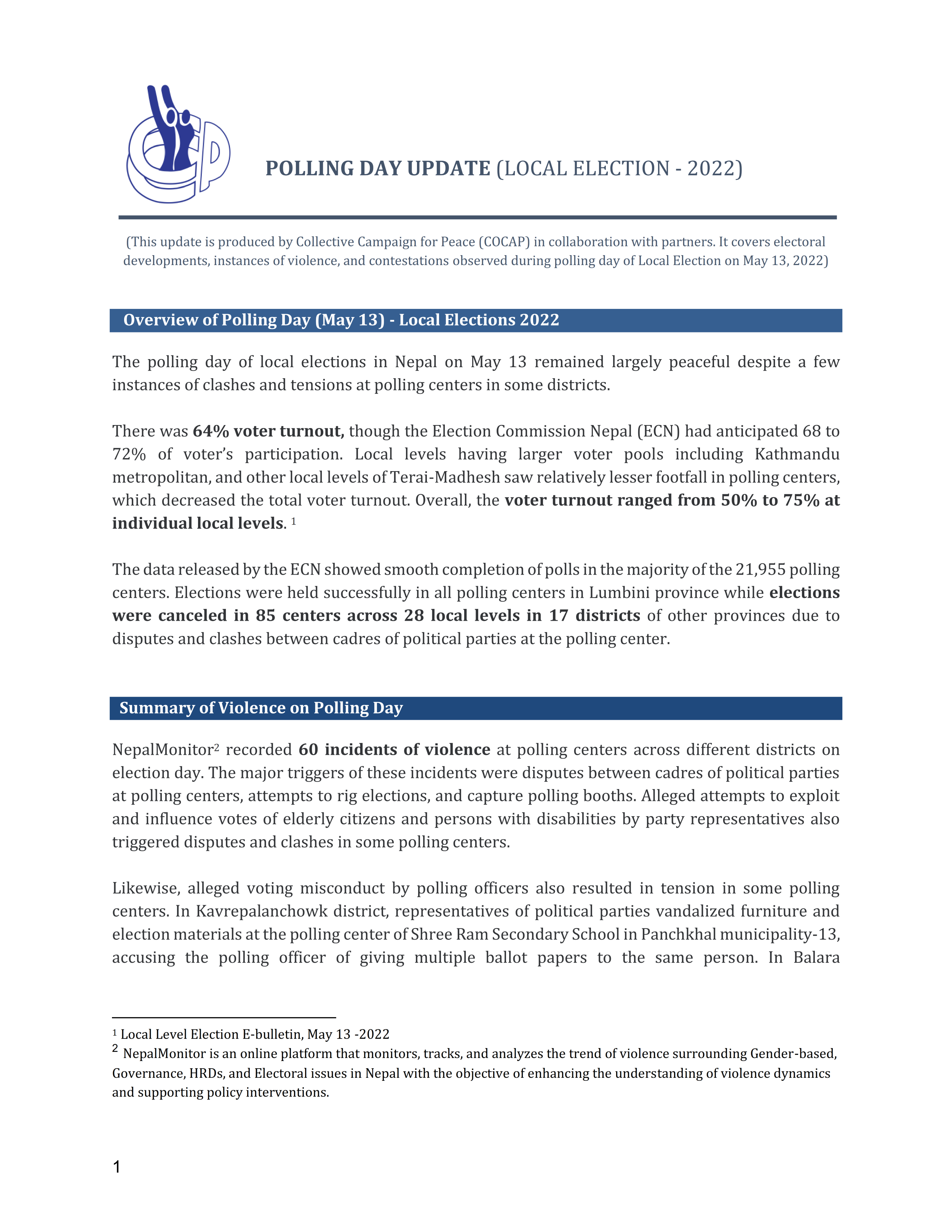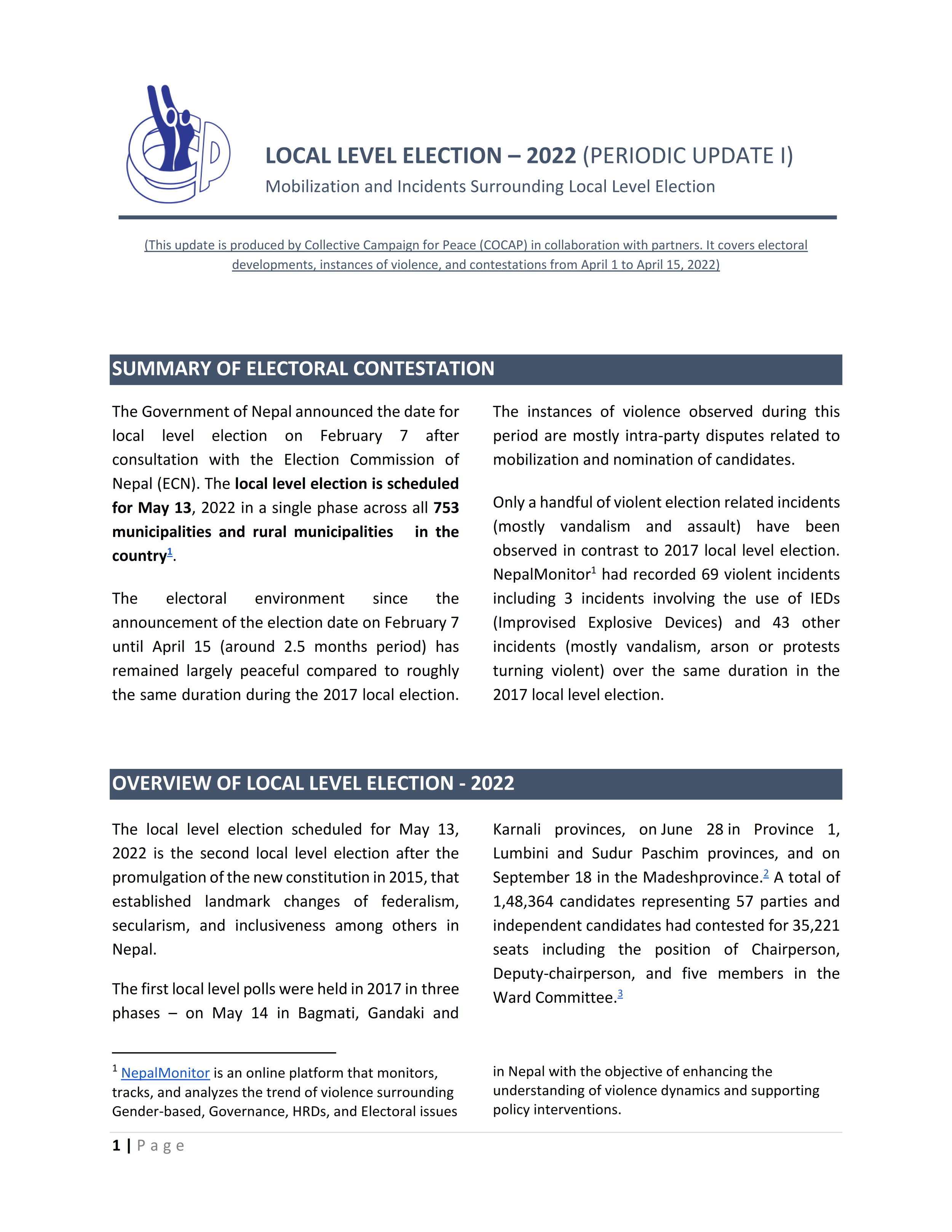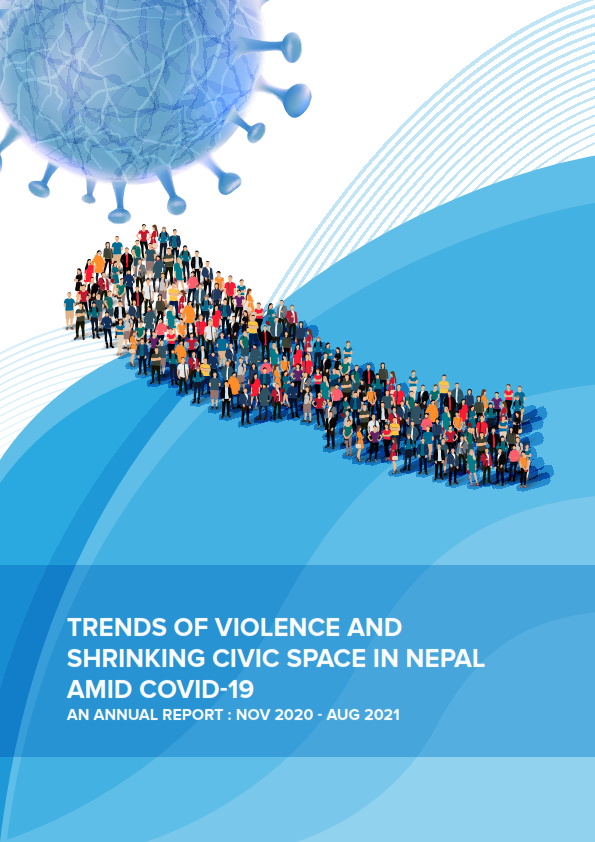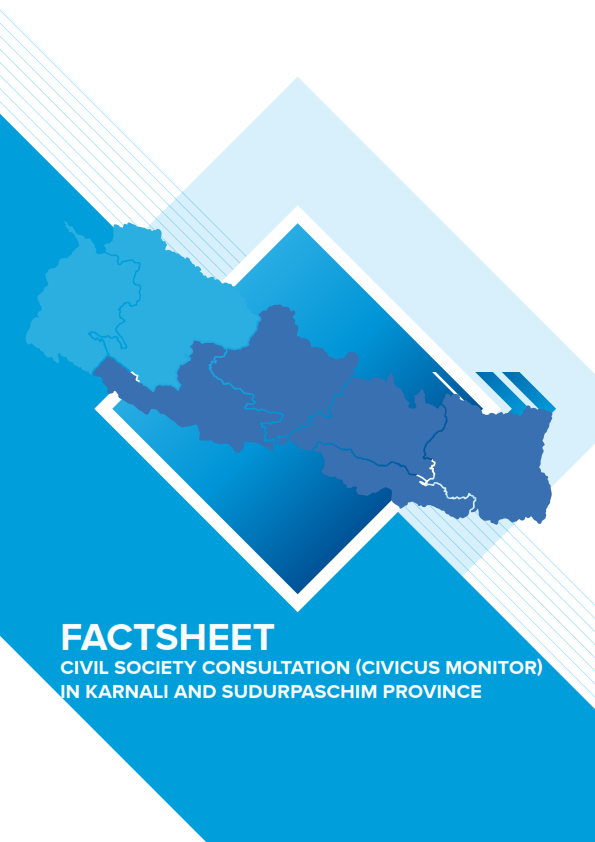Incident Reports
Big Brother looms- HARDIK SUBEDI, Harischandra Subedi
2019-02-22
Nepal
They claim that they have brought democracy by overthrowing the monarchy; but today, even they have become as lamentable as the king.” This is a rough translation of a line from the Nepali song ‘Lutna Sake Lut’ by Pashupati Sharma which has kicked up quite a controversy recently. The line aptly represents the current political tendency. No wonder the song has irritated the government’s Big Brother attitude. Having experienced suffocation under a repressive monarchy, we fought for freedom to change the nature of democracy and governance. But lawmakers are making laws that put the fundamental rights we fought for in peril as if they have suffered historical amnesia.
Several provisions in the draft Information Technology Bill are one of such direct onslaughts on freedom of speech. Section 94 mandates that no one should publish anything that ‘upsets, discourages, reprimands, and insults’ anyone. By using vague phraseology, Parliament has wielded unfettered discretion on prosecutorial authorities to initiate action against anyone who is critical of the government. This has sinister threats for the general public and specifically journalists who may be subjected to arbitrary arrest and harassment.
The proposed legislation also violates Proviso 1 of Article 17 (2) of the constitution which states that Parliament can formulate laws to reasonably restrict speech only within the categories provided under the said proviso. Certain content might cause annoyance or seem ‘upsetting, discouraging, reprimanding, and insulting’ to someone, but the standard demanded by the constitution is that of an incitement of an offence, and mere advocacy of an idea falls short of such a standard. Therefore, the aforementioned restrictions under Section 94 that this bill seeks to impose are not within the purview of the categories stipulated under the constitution.
It is well recognised that restrictions on speech should be sufficiently precise and clear so that they provide guidance to law-abiding citizens as to when their actions can be deemed illegal. Since the terms used in Section 94 are largely undefined, citizens will not be in a position to decide whether an expression is lawful or not. Due to fear of prosecution, citizens will hesitate to even express lawful speech, resulting in self-censorship. In 2015, the Supreme Court of India in a landmark judgment in Shreya Singhal v Union of India struck down Section 66A of the Information Technology Act 2000 for being vague and overbroad and causing a chilling effect.
The Information Technology Bill seems to be part of a concerted attempt of the government to take up a parental role to regulate public discourse surrounding its activities, akin to the Thought Police in the novel Nineteen Eighty-Four by George Orwell. The draft bill seems to have been prepared in flagrant disregard of international practices. According to General Comment 34 adopted by the United Nations Human Rights Council on the obligations of state parties under Article 19 of the International Covenant on Civil and Political Rights, which Nepal ratified in 1991, ‘all public figures, including those exercising the highest political authority such as heads of state and government, are legitimately subject to criticism and political opposition’.
It goes on to say that the speech which can be construed as ‘insulting’ against a public figure cannot be imposed with sanctions. But since the bill does not make any such exception, its application to suppress critical discussion around the work of a person holding public office is a strong possibility.
The bill draws even more suspicion of the ill motive of the government when we peruse Section 92 and Section 94 (2). These sections empower the Information Technology Department of the government to direct the intermediary for immediate removal of any material that is found objectionable. This is an insidious form of censorship that infringes the very core of democratic principles. Article 2 of the Manila Principles on Intermediary Liability: Best Practices Guidelines for Limiting Intermediary Liability for Content to Promote Freedom of Expression and Innovation 2015 says that restriction of speech should not be done without an order by an impartial judicial authority.
However, the government will be the judge in its own case, inevitably safeguarding its own interest at the cost of freedom of expression of the citizens. Conspicuously, Section 115 of the bill envisages the formation of a special court to deal with its operation in a swift manner, but it does not grant the authority to provide the orders to restrict speech. The appointment of government loyalists to such adjudicative bodies is not remote.
The tyrannical tone of the bill hits acute levels when the restrictions in it are appended with criminal sanctions under Section 96 which includes hefty fines running to hundreds of thousands of rupees and imprisonment up to 15 years. The standard of proportionality needs to be adopted in the prosecution under a speech restricting legislation. Time and again, international courts including the United Nations Human Rights Council has criticised imprisonment and hefty fines as a disproportionate response to holding opinions. Further, there is general consensus among free speech scholars that criminal defamation laws go against democratic principles and are anachronistic.
As has been quoted several times in different international and domestic decisions of various courts, the essence of the freedom of speech and expression clause is to protect the speech that offends, shocks and disturbs; it is not merely applicable to speech that is pleasant and favorably received as inoffensive. It is true that the government has the responsibility of preventing incitement and advocacy of national, religious, communal and racial hatred, but it should be mindful to not curb dissent, discourse and plurality.
With the proposed law, the government seems to have claimed its ‘copyright of thought control’—the hallmark of totalitarianism. This is how democracy ends. Not with a bang, but with a whimper.
Hardik is studying law at NALSAR University of Law, Hyderabad. Harischandra is an advocate at the Supreme Court of Nepal.
Related Reports
Governance / Kathmandu
Medical education concern committee protest by banging plates and whistling
Governance / Darchula
Workers padlock school citing non-receipt of wages for more than a year
Governance / Sunsari
Prohibitory order issued in Dharan, tightening at entry points
Governance / Morang
Students of Eastern College in Biratnagar on protest
Related Trend Analysis
Analysis

THE NEPAL PEACE MONITOR ANNUAL REVIEW: 2020
October 25, 2021
Human Trafficking / LGBT+ Rights / GBV / Political / Children’s Rights / Senior Citizens’ Rights / HRD Issues / Human Rights / Interpersonal Violence / Governance / Covid-19 / Civic-Space / PwD

_001.png)




